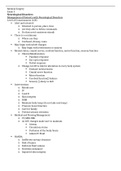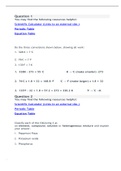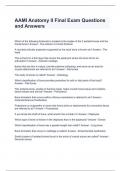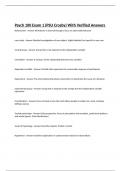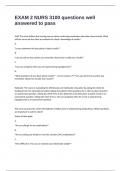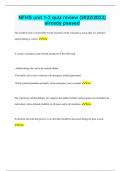Albertina Albors-Llorens, ‘Judicial protection before the Court of Justice of the European
Union’, in Barnard and Peers (eds), European Union Law (2017), chapter 10 – Judicial
protection before the Court of Justice of the European Union
1 Introduction
This chapter will explore the structure of direct actions and of preliminary references. The former are
brought directly either before the Court of Justice or the General Court, and they are dealt with in
their entirety by these courts. The latter, by contrast, begin before a national court.
2 The structure and jurisdiction of the Court of Justice of the European Union at a glance
There are four main types of direct actions:
Infringement (or enforcement) proceedings under Articles 258-260 TFEU, which are brought
by the Commission or a Member State against a Member State that has failed to comply with
its obligations;
The action for annulment (Articles 263-264 TFEU), which is used to challenge illegal acts of
the institutions, bodies, and agencies of the EU;
The action for failure to act (Articles 265-266 TFEU), which is used to challenge omissions of
the institutions, bodies and agencies of the EU;
The action for damages (Articles 268 and 340(2-3) TFEU, which is used to obtain
compensation for damage or loss suffered as a result of an unlawful Union act.
The plea of illegality under Article 277 TFEU is brought directly before the Court but is used to plead
the illegality of an EU act in an incidental way, i.e. in the course of proceedings pending before the
Court under another provision.
There are two types of preliminary references provided in Article 267 TFEU:
References on the interpretation of EU law;
References on the validity of EU law.
The Court of Justice now has full jurisdiction in most matters covered by EU law, including on the
provision in the area of freedom, security and justice but with the restrictions imposed by Article 276
TFEU. However, it has no jurisdiction in Common Foreign and Security Policy, with the two exceptions
provided in Article 275 TFEU.
3 Direct actions
3.1 Infringement procedure
3.1.1 Overview
3.1.2 The elements in Article 258 TFEU
3.1.3 Procedure
3.1.4 Sanctions
3.2 The action for annulment
3.2.1 Overview
The action for annulment and the action for a failure to act represent two dimensions of the same
remedy, namely on that addresses the situation where an EU institution has either adopted an illegal
act or has failed to act when it had an obligation to act under EU law. Article 263 TFEU sets four
pivotal points that the Court will examine when an action for annulment is brought: (a) compliance
with the time limit for bringing an action; (b) the reviewability of the act; (c) the standing of the
, applicant; (d) the existence of possible grounds for the annulment of the act.
3.2.2 Time limit
3.2.3 Reviewable acts
The essential quality for an act to be reviewable under Article 263 TFEU is that it should be legally
binding. In the post-Lisbon classification found in Articles 289-291 TFEU, both legislative and non-
legislative acts that produce legal effects are reviewable.
3.2.4 Standing
Privileged and semi-privileged applicants
Under Article 263(2) TFEU, the privileged applicants are the Member States, the Parliament,
the Commission, and the Council. They are privileged because they have an automatic right
to bring proceedings and therefore they do not have to satisfy any conditions of locus standi.
Post Lisbon, the semi-privileged applicants are the Court of Auditors, the European Central
Bank, and the Committee of the Regions. Unlike privileged applicants, semi-privileged
applicants do not have an automatic right of action and can only bring proceedings when
their prerogatives are at state (e.g. they have not been consulted in a certain procedure).
Non-privileged applicants
Natural and legal persons are commonly referred to as non-privileged applicants in the
context of annulment proceedings, since Article 263(4) TFEU imposes strict standing
conditions on them when they wish to challenge a potentially unlawful EU act. Following the
Lisbon amendments, there are three situations when they have locus standi:
o If they are the addressees of the act in question, they will have automatic standing;
o If they are not the addressees of the act, they will have to show that they are directly
and individually concerned by it, but;
o If they are non-addressees and the act they wish to challenge is a regulatory act, they
will have to show that they are directly concerned by it and that the act does not
entail implementing measures.
The general standing test: direct and individual concern
o ‘Acts’
Article 263(4) TFEU uses the all-embracing term of ‘acts’, meaning all acts producing
legal effect. Thus, non-privileged applicants can now clearly challenge not only
decisions, but also regulations and directives and, effectively, any sui generis acts
that produce legal effects.
o Individual concern
The Plaumann case was about a German company that imported clementines from
outside the EEC, and challenged a decision of the Commission addressed to Germany
refusing authorisation partially to suspend the application of a customs duty set out
in the Common Customs Tariff in relation to this fruit. The Court stated that one
would be individually concerned in ‘circumstances in which they are differentiated
from all other persons and distinguishes them individually’. This means that carrying
out a particular economic activity affected by the measure does not suffice to satisfy
the test of individual concern. Looking at the case law, examples of applicants who
satisfied the closed category test included those who – before the measure was
adopted – had pursued an individual course of action, such as applying for licences or
export refunds or having pending contracts or goods in transit. An applicant thus
needs to be a member of a ‘closed class’.
It is unsurprising that repeated calls for a reformulation of this test were made. In
UPA v Council, a Spanish trade association representing small agricultural producers


